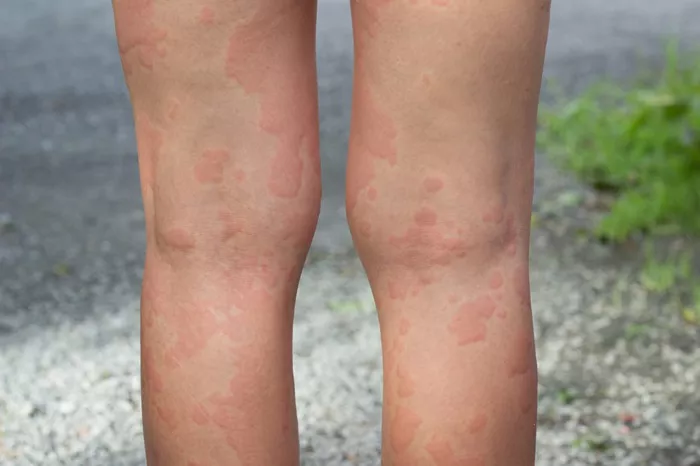Anxiety and depression are common mental health disorders that can have a profound impact on individuals’ lives, affecting their emotional well-being, relationships, and overall quality of life. While these conditions are highly treatable with appropriate interventions, untreated anxiety and depression can lead to a range of adverse consequences, both mentally and physically. In this comprehensive article, we explore the far-reaching effects of untreated anxiety and depression, shedding light on the importance of early intervention and comprehensive treatment approaches.
Understanding Anxiety and Depression
Before delving into the consequences of untreated anxiety and depression, it’s essential to understand the nature of these disorders and how they manifest.
Anxiety Disorders: Anxiety disorders are characterized by excessive worry, fear, and apprehension that are disproportionate to the situation and interfere with daily functioning. Common types of anxiety disorders include generalized anxiety disorder (GAD), panic disorder, social anxiety disorder, and specific phobias.
Depressive Disorders: Depressive disorders, commonly referred to as depression, involve persistent feelings of sadness, hopelessness, and loss of interest or pleasure in activities. Major depressive disorder (MDD), persistent depressive disorder (dysthymia), and bipolar disorder are among the most common depressive disorders.
Both anxiety and depression can manifest with a variety of symptoms, including:
Physical Symptoms: Fatigue, insomnia, muscle tension, headaches, gastrointestinal disturbances, and changes in appetite or weight.
Emotional Symptoms: Persistent sadness, irritability, mood swings, feelings of guilt or worthlessness, and difficulty concentrating or making decisions.
Behavioral Symptoms: Withdrawal from social activities, avoidance of responsibilities, changes in sleep patterns, and increased substance use or risk-taking behaviors.
Consequences of Untreated Anxiety and Depression
Untreated anxiety and depression can have far-reaching consequences that impact every aspect of an individual’s life, including their mental health, physical health, relationships, and overall well-being. Here are some of the potential consequences of untreated anxiety and depression:
Impaired Quality of Life: Untreated anxiety and depression can significantly diminish an individual’s quality of life, leading to persistent feelings of distress, dissatisfaction, and unhappiness. Everyday activities may become challenging, and individuals may struggle to find joy or fulfillment in life.
Social Isolation: Anxiety and depression can lead to social withdrawal and isolation as individuals may avoid social interactions due to feelings of fear, self-doubt, or low self-esteem. This isolation can further exacerbate feelings of loneliness and contribute to a cycle of worsening symptoms.
Relationship Strain: Untreated anxiety and depression can strain relationships with family members, friends, and romantic partners. Communication may become strained, and individuals may struggle to express their needs or provide support to their loved ones.
Impaired Work and Academic Performance: Anxiety and depression can impair cognitive function, concentration, and productivity, making it difficult to perform well at work or school. Absenteeism, presenteeism, and decreased job satisfaction may result, leading to financial strain and career setbacks.
Increased Risk of Substance Abuse: Individuals with untreated anxiety and depression may turn to substances such as alcohol, drugs, or prescription medications to cope with their symptoms. Substance abuse can exacerbate mental health issues, lead to addiction, and increase the risk of accidents, injuries, and overdose.
Physical Health Complications: Untreated anxiety and depression are associated with an increased risk of various physical health complications, including cardiovascular disease, hypertension, diabetes, obesity, and chronic pain conditions. The chronic stress response associated with these mental health disorders can dysregulate the immune system and contribute to inflammation and oxidative stress, further exacerbating physical health problems.
Suicidal Ideation and Behavior: Perhaps the most concerning consequence of untreated anxiety and depression is an increased risk of suicidal ideation and behavior. Persistent feelings of hopelessness, despair, and worthlessness can lead individuals to contemplate or attempt suicide as a way to escape their pain and suffering.
The Importance of Early Intervention and Treatment
Given the significant consequences of untreated anxiety and depression, early intervention and comprehensive treatment are essential for promoting recovery and preventing further harm. Treatment approaches for anxiety and depression may include:
Psychotherapy: Cognitive-behavioral therapy (CBT), interpersonal therapy (IPT), and other forms of psychotherapy can help individuals develop coping strategies, challenge negative thought patterns, and improve communication skills.
Medication: Antidepressant medications, such as selective serotonin reuptake inhibitors (SSRIs) and serotonin-norepinephrine reuptake inhibitors (SNRIs), may be prescribed to alleviate symptoms of anxiety and depression. These medications can help rebalance neurotransmitter levels in the brain and improve mood.
Lifestyle Modifications: Adopting healthy lifestyle habits, such as regular exercise, balanced nutrition, adequate sleep, stress management techniques, and social support, can complement other treatment modalities and promote overall well-being.
Support Groups: Participating in support groups or peer-led organizations can provide individuals with a sense of community, understanding, and validation as they navigate their journey toward recovery.
Professional Support: Seeking guidance from mental health professionals, including psychiatrists, psychologists, social workers, and counselors, can provide individuals with personalized treatment plans and ongoing support as they work toward healing and recovery.
Conclusion
In conclusion, untreated anxiety and depression can have profound and far-reaching consequences that impact every aspect of an individual’s life. From impaired quality of life and social isolation to increased risk of substance abuse and suicidal ideation, the repercussions of untreated mental health disorders can be devastating.
However, with early intervention and comprehensive treatment, individuals can find relief from their symptoms, regain a sense of control over their lives, and experience improved overall well-being. By raising awareness about the importance of mental health, promoting access to effective treatment options, and fostering supportive communities, we can work together to reduce the stigma surrounding anxiety and depression and provide hope and healing to those in need.
[inline_related_posts title=”You Might Be Interested In” title_align=”left” style=”list” number=”6″ align=”none” ids=”8631,8624,8628″ by=”categories” orderby=”rand” order=”DESC” hide_thumb=”no” thumb_right=”no” views=”no” date=”yes” grid_columns=”2″ post_type=”” tax=””]
































